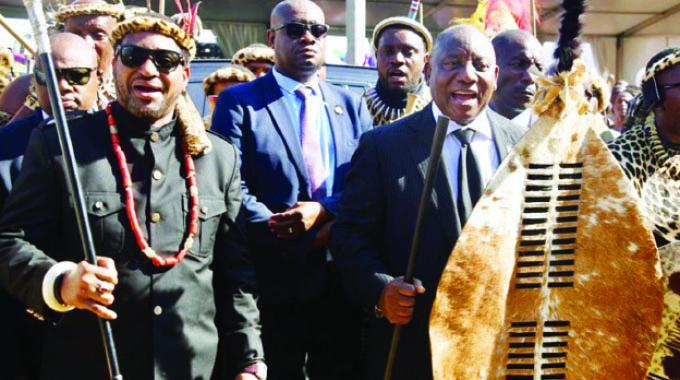All set for DRC polls despite setbacks

Innocent Madonko in KINSHASA, DRC
ALL is set for DRC general elections on Wednesday, with logistics now in place while campaigning ends today ahead of what promises to be a tight race for the presidency pitting incumbent President Felix Tshisekedi against 24 other candidates.
Voters will choose candidates for President, Members of National Assembly, Senate and councils in a country with 44 million registered voters and a population exceeding 100 million people.
There are more than 100 000 candidates for the four categories.
Besides the vastness of the country, there are infrastructure challenges with large swathes of the DRC lacking navigable roads and other amenities, making deployment of electoral officials virtually impossible.
The conflict in the east of the country has also exacerbated the situation, resulting in two cities in North Kivu province – Masisi and Rutshuru – being excluded from the election as officials could conduct neither voter education or registration due to insecurity.
Gwamuti in Western DRC will also not take part in the Wednesday polls for the same reasons.
Briefing journalists from the SADC region here on Saturday, president of the Independent Electoral Commission (CENI) of the DRC, Mr Denis Kadima, said elections will be held without fail.
He added that the country was ready to conduct a credible poll and ensure a smooth transfer of power – the second one since gaining independence from Belgium 63 years ago.
President Felix Tshisekedi, who came to power in 2019 after beating his closest challenger, Mr Martin Fayulu, faces a tight contest from millionaire businessman Mr Moise Katumbi and Mr Fayulu, as he aims for a second and final five-year mandate.
“As the commission we are working very hard and we are convinced that on the 20th there is no doubt that we will be having elections,” he said.
“We started our work with a lot of delays, 28 months of delays and it has been an uphill battle, all the time running around like a headless chicken, but I am convinced that there is nothing that will prevent us from holding an election on Wednesday.”
Mr Kadima confirmed there will be no elections in three cities in the east and west of the country due to instability.
“We have a lot of instability and insecurity in the east particularly in two areas – one called Rutshuru and the other called Masisi – it’s in North Kivu province. We are not going to hold elections there because we didn’t conduct voter registration due to the violence. So elections in those two areas plus one other area called Gwamuti in Western Congo are not going to hold elections,” said Mr Kadima.
On whether this year’s elections will be free and fair, the CENI boss said the best way to judge the polls was to compare the process to 2018 – the first time that the DRC conducted what was described as a credible election following years of conflict and disputed polls.
“The CENI has left no stone unturned to deliver a credible election. There are a lot of improvements; for instance, we have allowed long-term observation; we have insisted that Parliament include it in the laws so that people can observe the process at any stage.
“You can’t just come now and observe the process; you need to be involved throughout. International observers were allowed to see what we were doing throughout the country and to make recommendations which allowed us to improve along the way.
“So what is important here is to note that we believe that the process is free, fair and credible. People were free to register, free to stand as candidates. If you look at 2018, people were barred, some even went into exile and could not take part. This time around, everyone who wanted to stand is a candidate to the extent that we have 26 presidential candidates and for all the four polls, we have 100 000 candidates; that’s huge, almost the size of the population of Seychelles,” said Mr Kadima.
In 2018, there were 35 000 candidates, implying a three-fold increment.
Results will be released at polling station level to improve transparency.
Mr Kadima said one of the biggest challenges in 2018 was that they didn’t release results by polling station, with people given results in bulk.
“We are going to give the figures with the breakdown, at the level of the polling station, so that if you document it at the polling station through your party agent, you are able to trace back the result and know whether CENI has played games or not.
“So we are very open and transparent. We have politicians whose strategy throughout this process has been to discredit us. Anything that we have done they have tried to criticise but where we have done well, they keep quiet.
“Any slight mistake from our side, even technical ones, they politicise because they want to turn back after the elections and reject the results on those grounds. Granted, the reality is we have had a lot of challenges because we started late, the infrastructure is not in a very good shape like everything in our country, but you will notice that any challenge we face, applies throughout the country,” said Mr Kadima.










Comments